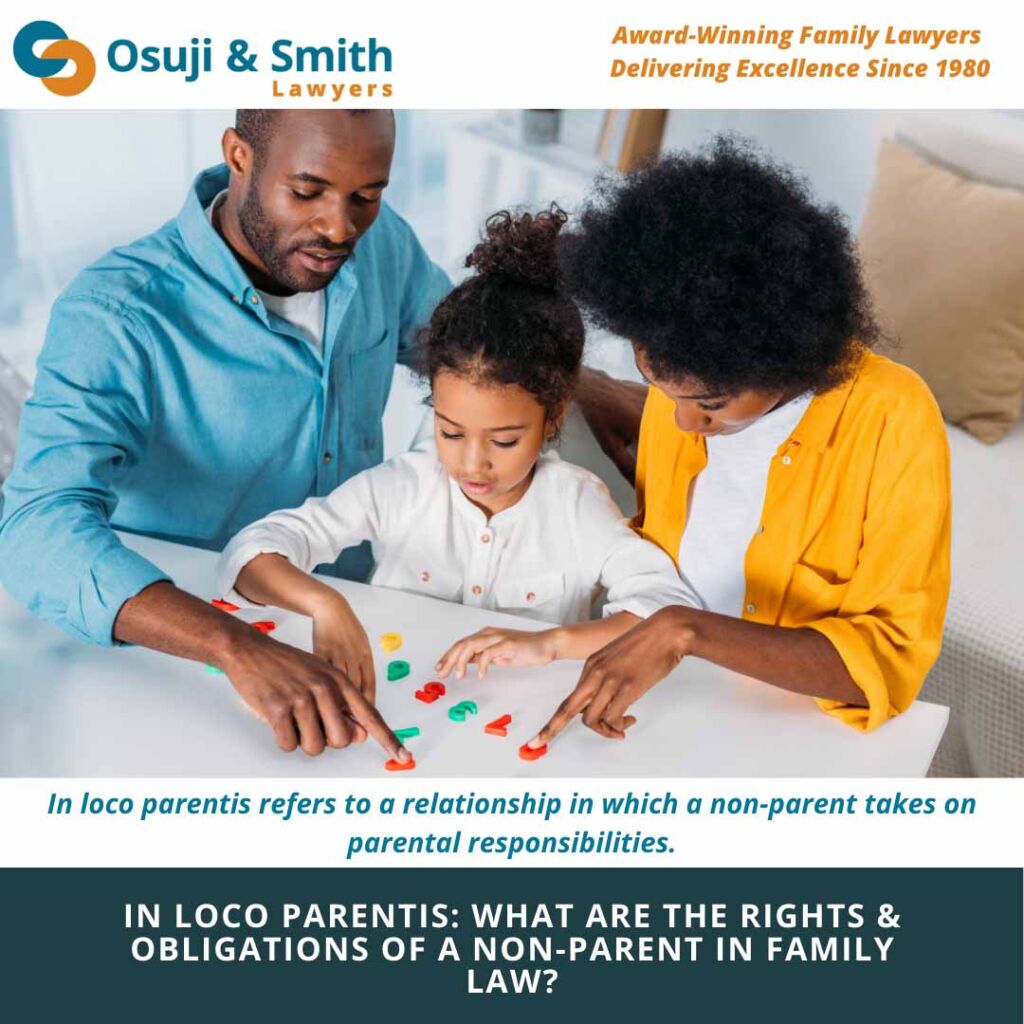In Loco Parentis: What are the Rights & Obligations of a Non-Parent in FAMILY LAW?
In loco parentis refers to a relationship in which a non-parent takes on parental responsibilities. In some situations, this arrangement is agreed upon by everyone involved, but in other situations, the court decides if the non-parent is a legitimate caregiver for the child. This post explains the rights and obligations of a non-parent in loco parentis in family law.
In what situations is in loco parentis necessary?

Perhaps the most familiar situation requiring in loco parentis is when grandparents take over guardianship of their grandchild. But there are many other situations that require a non-family member to take on the role of a parent in the life of a child.
Some other in loco parentis situations include school officials and teachers taking on the same role and responsibility of a parent while students are in their care, or a temporary childcare arrangement such as when parents are in the military and deployed overseas.
An adult may pursue an in loco parentis relationship to ensure the best possible care for a child while preserving the parental rights of the biological parents. In loco parentis may be helpful or required when:
- The court gives a non-parent legal decision-making authority for a child
- The court grants primary custody of a child to a non-parent
- A parent is seeking child support from a non-parent
- A non-parent is seeking visitation rights
- A non-parent is requesting temporary leave from work to care for a sick child
In loco parentis can be complex, and every situation is different and assessed uniquely in Alberta courts.
How does the court in Alberta determine in loco parentis?
The court in Alberta looks at many factors to determine whether a person is in loco parentis, including
- The child’s age
- The length of the relationship between the non-parent and the child
- The non-parent’s consideration of applying for guardianship or adoption of the child, if applicable
- Any direct or indirect financial support provided to the child by the non-parent
- The nature of the relationship between the child and the biological parents
- The nature of the relationship between the child and the non-parent, including:
- The child’s perspective of the non-parent
- The involvement of the non-parent in the child’s care, discipline, activities, and education
- Any attempts at contact or ongoing contact between the non-parent and the child
The test is quite broad. These and any other factors can be considered by the court in Alberta to determine in loco parentis cases.
What are the rights & obligations of someone in loco parentis?
Once the court determines that a non-parent is in loco parentis, the non-parent has the same rights and obligations of the biological parent. This includes child custody and access, and child support.
In a recent Alberta court case, Thierman v Tymchuk, 2021 ABQB 902, Mr. Thierman (in loco parentis) was given the responsibility of paying child support even though he is not the child’s biological parent. To determine how much child support he must pay, and for how long, the court primarily considered:
- The amount prescribed in the Federal Child Support Guidelines and Alberta’s Family Law Act
- The amount of child support the biological father is responsible for
- The length of the relationship between Mr. Thierman and the child
For more information about child support, child custody and access in Alberta, see also How is Child Support Calculated in Alberta? and What is the Difference Between Custody and Access in Alberta Family Law?.
ALBERTA FAMILY LAW LAWYERS: Osuji & Smith
Parental rights and obligations are life-altering. This makes parenting, child custody and access, and child support situations highly emotional and complex. Because each case is unique and determined by so many factors, having an experienced family law lawyer at your side can significantly help your case.
The Family lawyers at Osuji & Smith have experience with in loco parentis cases and are committed to providing compassionate counsel and advocating for the best interests of the child. If you need help with an in loco parentis situation, contact us today.

